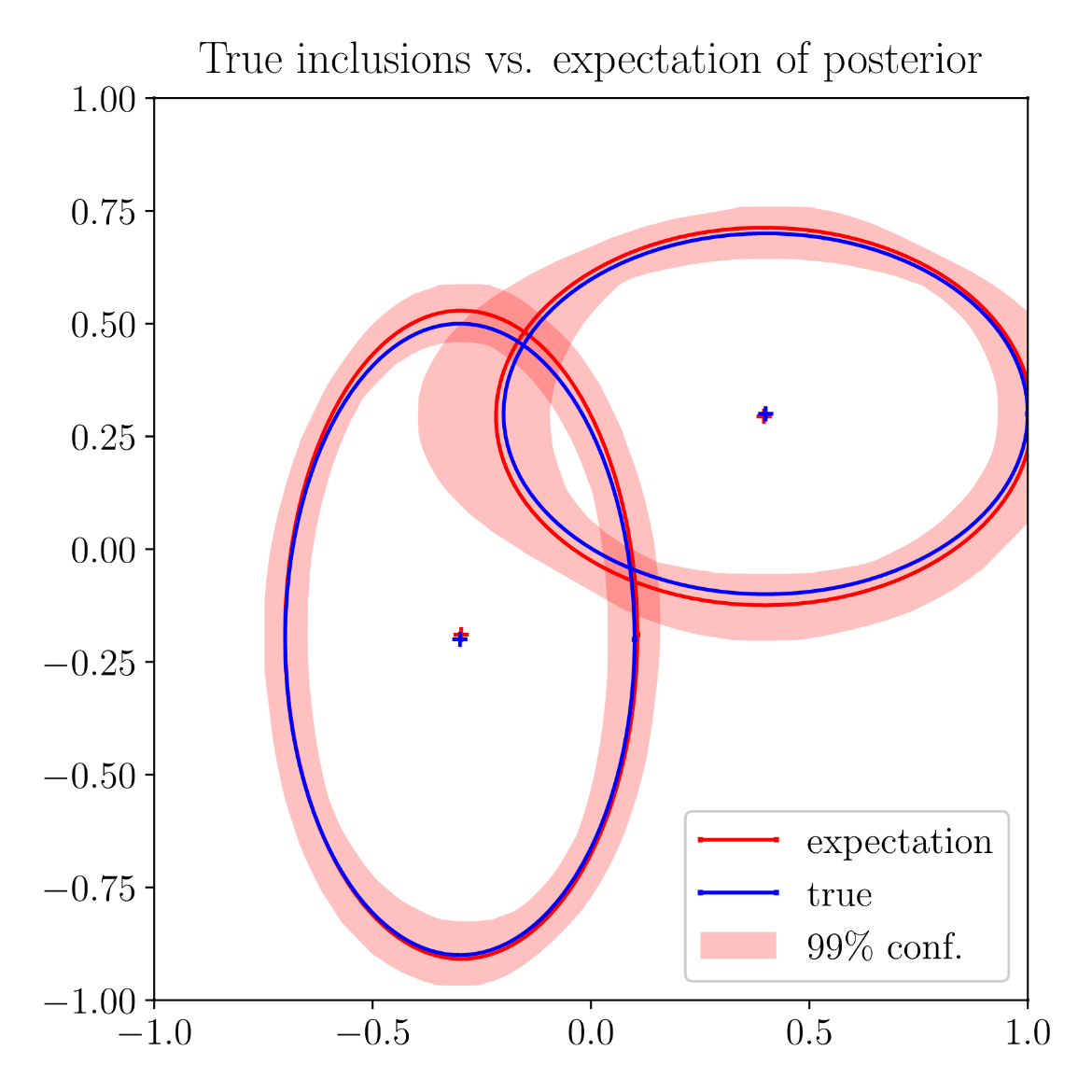Project description
Detecting (stochastic) inclusions via measurements at a boundary of the space-time cylinder in a setting modeled by a partial differential equation has various applications in the sciences. This project seeks the detection of stochastic (discontinuous) inclusions in a Bayesian inversion setting. The low regularity of the stochastic random field describing the inclusions limits the use of standard approaches. After providing a general formulation for a variable stochastic setting, adaptive numerical approaches are developed. Detecting\reconstructing the inclusion may be tackled via a point estimator like a maximum a-posteriori estimate. A machine-learning-based method is employed to lower the computational complexity the high-dimensionality that the problem inherently brings.
However, quantifying the associated uncertainty remains challenging, especially if the parametrization of the inclusion is high-dimensional and very sensitive. Quantifying the uncertainty of the detected inclusion from (limited) measurements in a Bayesian setting with minimal computational complexity directly addresses RQ4 described in the PN 5 research plan.
Project information
| Project title | Uncertainty quantification for data-limited inverse problems via efficient probabilistic ML methods |
| Project leaders | Andrea Barth (Dirk Pflueger) |
| Project staff | Oliver Koenig, doctoral researcher |
| Project duration | September 2022 - December 2025 |
| Project number | PN 5-11 |


